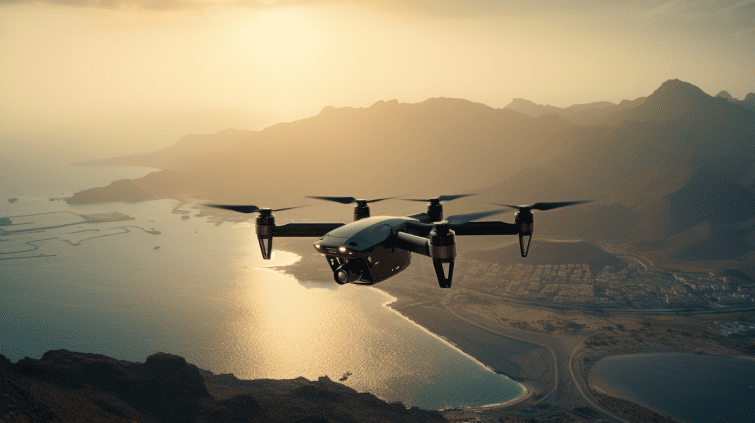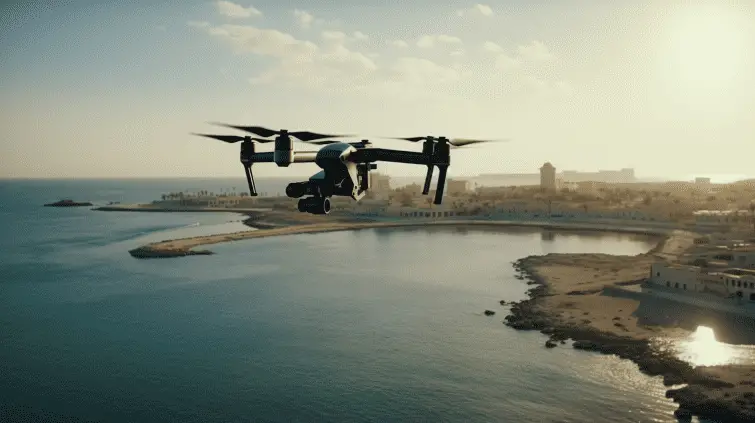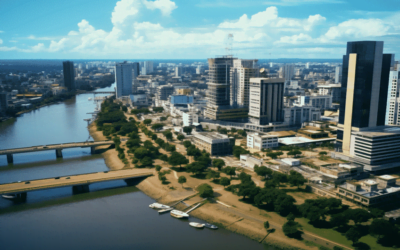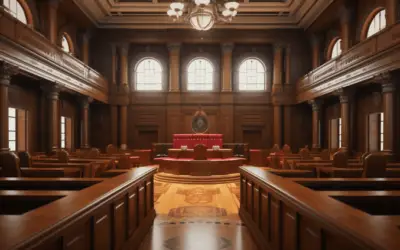You know, I get it. You’re probably here because you’ve got that burning question in your mind. The one about Bahrain drone laws
Maybe you’re a drone enthusiast like me, eager to explore the skies in this beautiful country, or perhaps you’re just curious about the regulations that govern those buzzing machines overhead.
Well, you’re in the right place because I’ve been there, and I’m excited to help you navigate through the intricacies of Bahrain’s drone laws.
Let me tell you, I’ve done my homework. I’ve delved deep into the world of drone laws in Bahrain to provide you with accurate, up-to-date, and trustworthy information.
It’s not just about quoting rules and regulations; it’s about understanding how these laws impact drone enthusiasts and users like us.
Through extensive research, I’ve uncovered the ins and outs of the regulations, so you can be confident that the answers you seek are well-informed and reliable.
Now, if you’re eager to find a solution to your questions about Bahrain drone laws, I invite you to read on. In the following sections, we’ll explore the specifics of drone registration, flight restrictions, safety guidelines, and more.
Whether you’re a beginner or a seasoned drone pilot, this article aims to be your go-to resource for all things related to drones in Bahrain.
So, let’s embark on this journey together, and by the time you finish reading, you’ll be well-prepared to navigate the skies of Bahrain within the bounds of the law.
- Overview of Drone Regulations in Bahrain
- Drone Registration and Licensing in Bahrain
- Bahrain Flight Restrictions and No-Fly Zones
- Drone Altitude Limitations in Bahrain
- Safety Guidelines and Best Practices
- Bahrain Equipment Standards for Drones
- Drone Liability and Insurance in Bahrain
- Bahrain Import and Export Regulations
- Penalties for Violations in Bahrain
- Resources for Additional Information
- Final Thought on Bahrain Drone Laws
Overview of Drone Regulations in Bahrain

Okay, let’s dive into the heart of the matter: the drone regulations in Bahrain. You know, every place has its own set of rules to keep things in check when it comes to these buzzing gadgets.
Bahrain is no exception, and understanding how these regulations came to be, who’s overseeing them, and why they exist is crucial. So, let’s start our journey with a brief overview.
Background and Development of Drone Regulations
In the not-so-distant past, drones were like the Wild West in Bahrain’s skies. They were becoming increasingly popular, and it was clear that we needed some guidelines. It’s somewhat like when a neighborhood needs traffic signs because everyone’s driving in different directions.
The Bahraini government recognized the potential of drones and also the need to ensure safety, privacy, and security. This recognition led to the development of drone regulations.
As technology advanced and drones became more affordable and accessible, the government decided to create a regulatory framework.
This framework was designed not to stifle the drone enthusiast in us but to ensure that our drone adventures are both enjoyable and safe. The regulations aim to balance the freedom to fly with the responsibility to do so responsibly.
Relevant Governing Authorities
You might be wondering, “Who’s in charge of all this drone stuff?” Well, that’s where the Civil Aviation Authority steps in.
They’re like the air traffic controllers of the drone world in Bahrain. They’re the experts who oversee the implementation and enforcement of drone regulations.
If you have questions or need guidance regarding drone registration, licensing, or flight permissions, these are the folks to turn to.
The authority’s role is essential to maintaining order in Bahrain’s airspace, preventing unauthorized drone operations in sensitive areas, and ensuring that all drone pilots abide by the same rules.
With their expertise and authority, the Civil Aviation Authority keeps the skies safe and ensures that we can continue enjoying our drone hobby or profession without causing any trouble.
The Need for Regulatory Oversight
So, why do we need these regulations in the first place? It all boils down to balance. Think of it like driving on the roads. We have traffic rules to prevent accidents and ensure that everyone can get to their destinations safely.
Similarly, drone regulations are there to strike a balance between enjoying the thrill of flying drones and respecting the rights and safety of others.
Without these rules, we might see drones interfering with air traffic, breaching people’s privacy, or even causing accidents.
The need for regulatory oversight isn’t about squashing our enthusiasm but about making sure we all share the skies responsibly. It’s like a well-orchestrated dance in the sky, and the rules ensure that everyone knows their steps and can enjoy the performance safely.
So, there you have it—a sneak peek into the background and development of drone regulations in Bahrain, the governing authority overseeing them, and the vital role these regulations play in keeping the skies friendly and secure.
Now, let’s explore the specifics and intricacies of these laws in the upcoming sections.
Drone Registration and Licensing in Bahrain

Alright, let’s talk about the nitty-gritty stuff, the registration and licensing of drones in Bahrain. It’s where the rubber meets the road, or in this case, where the drone takes to the skies. We’ll explore the ins and outs of what’s required to keep your drone above board.
Requirement for Drone Registration
First things first, if you’re thinking about taking your drone on a spin in Bahrain, you’ll likely need to register it. Think of it like getting your driver’s license for a car.
This process isn’t about tying your drone down but ensuring that it’s accounted for in the system. Whether you’re a recreational flyer or a commercial operator, registration is often a must, and it’s designed to keep track of who’s flying what.
Imagine a city with unregistered cars driving around – it would be chaotic. Similarly, unregistered drones could lead to confusion and potential safety hazards. By registering your drone, you’re helping authorities keep the skies orderly and safe for everyone.
Types of Licenses or Permits (Recreational vs. Commercial)
Now, when it comes to licenses or permits, there are generally two main categories: recreational and commercial. It’s somewhat akin to having a regular driver’s license versus a commercial driver’s license for a big rig.
Recreational flyers, like hobbyists, often have different requirements compared to those flying drones for professional purposes.
The distinction is necessary because flying a drone for fun at a local park is quite different from using it for aerial photography or surveying. It’s all about understanding your purpose and the rules that come with it.
Application Process and Fees
So, you’re ready to register your drone or get that license, but how do you go about it? Well, there’s usually an application process. It’s similar to applying for a passport or driver’s license, where you provide necessary information and meet specific requirements.
These requirements might include age restrictions, knowledge tests, and more, depending on the type of license.
Oh, and let’s not forget about the fees. Just like you pay for your driver’s license, there are fees involved in the drone registration and licensing process. It’s the cost of ensuring that everyone understands the rules and responsibilities of flying safely.
Documentation and Identification Requirements
When you’re out there with your drone, it’s important to have your documentation and identification in order. This is like carrying your driver’s license while you’re driving – it’s your proof of permission.
For drones, you’ll typically need to have your registration or license documentation readily available when flying. It’s a way to show that you’re in compliance with the law and have the authority to operate your drone.
So, whether you’re registering your drone, getting a license, navigating the application process, or ensuring you have the right documents, these are all essential steps to keeping our skies organized and safe for everyone.
Remember, it’s not about restricting your drone passion but making sure that it thrives responsibly.
Bahrain Flight Restrictions and No-Fly Zones

So, you’ve got your drone registered, maybe even have your license in hand, and you’re itching to fly. But hold on just a bit! We need to talk about flight restrictions and those no-fly zones in Bahrain. Think of them as traffic signals for drones, ensuring that we don’t crash into any red lights in the sky.
Description of Restricted Areas and No-Fly Zones in Bahrain
First things first, let’s discuss restricted areas and no-fly zones. Just like a map might have marked-off zones for construction or traffic diversions, the Bahraini skies have their own designated areas where drone flight is either restricted or downright forbidden.
These areas are typically set up to protect sensitive locations, maintain air traffic safety, and safeguard privacy.
Some common examples of these no-go zones include airports, government buildings, and military installations. Flying your drone near these places could be a bit like trying to drive your car onto a military base – it’s not going to end well.
These zones are well-defined and usually easily accessible through maps or apps that drone enthusiasts often use to plan their flights.
Proximity to Airports, Government Buildings, and Military Installations
When it comes to flight restrictions, proximity is key. Just as we’re required to keep a safe distance from vehicles on the road, we also have to maintain a safe distance from certain locations when flying drones.
Being too close to airports, government buildings, or military installations can pose serious risks. It’s not only about maintaining airspace safety but also respecting the boundaries and security of these areas.
Imagine flying your drone near an airport runway. The potential for disaster is clear. By understanding and respecting these flight restrictions, we’re ensuring that the skies remain safe and free from accidents or conflicts.
Implications of Violating No-Fly Zones
Now, what happens if you decide to ignore these no-fly zones and flight restrictions? Well, it’s a bit like ignoring a traffic signal – you might find yourself in a bit of trouble.
The implications of violating no-fly zones can range from fines and confiscation of your drone to legal consequences. It’s not a path anyone wants to tread because, just like the road, safety and compliance are the name of the game in the skies.
By being aware of these restrictions and respecting them, we’re not just following the rules; we’re contributing to the overall safety and harmony of the airspace.
So, as you prepare to take flight with your drone, remember that these restrictions are in place for a good reason, and adhering to them is a vital part of responsible drone operation.
Drone Altitude Limitations in Bahrain

Let’s chat about altitude limitations, something that every drone pilot needs to be aware of. Imagine the sky as a multi-level building with different floors, each designated for a specific purpose. Understanding and respecting altitude restrictions is like knowing which floor you’re allowed to visit.
Explanation of Altitude Restrictions
Altitude restrictions are a bit like setting speed limits on the road. They define how high you can go with your drone.
These restrictions are put in place for safety, airspace management, and to prevent potential conflicts with other aircraft. It’s all about maintaining order in the skies and ensuring that drones don’t interfere with manned aircraft.
Maximum Allowed Altitude for Drone Flights
In Bahrain, as in many countries, there’s typically a maximum allowed altitude for drone flights. It’s like having a ceiling in your home; you can’t just keep going up indefinitely.
The specific maximum altitude can vary, but it’s often around 400 feet (120 meters) above ground level. This limit strikes a balance between enjoying the freedom to explore the sky and ensuring safety for all.
Think about it this way: if drones could fly as high as they wanted, there could be a risk of interfering with planes or even satellite operations. By setting a maximum altitude, authorities keep the skies orderly and safe for everyone.
Importance of Adhering to Altitude Limitations
So, why is it crucial to adhere to altitude limitations? Well, consider it a bit like respecting the speed limits on the road.
Exceeding those limits could lead to accidents and chaos. Similarly, going beyond the maximum allowed altitude for drones can have serious consequences, including safety hazards, collisions with other aircraft, and potential violations of aviation regulations.
By following these restrictions, we’re ensuring that our drone flights remain safe, predictable, and free from accidents. It’s all about sharing the skies responsibly and making sure that our passion for flying drones doesn’t disrupt the larger aviation ecosystem.
Safety Guidelines and Best Practices

Alright, let’s talk about safety – perhaps the most crucial aspect of flying drones in Bahrain. Think of it as the seatbelt of drone flying. We’re not just here to have fun; we’re here to ensure that everyone stays safe in the process.
Importance of Safety in Drone Operations
Safety is the backbone of responsible drone operations. Just like you wouldn’t take your car out without checking the brakes, you shouldn’t fly your drone without ensuring that it’s done safely.
It’s not just a matter of complying with the law; it’s about minimizing the risk of accidents, damage, and potential harm to others.
Imagine flying your drone in a way that puts people, animals, or vehicles in harm’s way – it’s not something any responsible pilot would want. Safety isn’t an option; it’s a necessity.
Maintaining Line-of-Sight with the Drone
One of the fundamental safety rules in drone flying is maintaining line-of-sight with your drone. It’s like keeping an eye on your child while they play in the park.
When you can see your drone, you’re better equipped to react to any unexpected situations and ensure that it doesn’t end up somewhere it shouldn’t be.
Losing sight of your drone could lead to accidents, loss of control, or even violating no-fly zones. Just as you wouldn’t let your child wander out of sight, you should always keep your drone within your visual range.
Avoiding Flying Near People, Animals, and Vehicles
Picture this: you’re at a park, and suddenly a drone buzzes right over your head. Not the most pleasant experience, right? That’s why it’s crucial to avoid flying your drone near people, animals, or vehicles.
Think of it as maintaining personal space in a crowded room. Nobody likes their personal space invaded, and the same goes for the airspace.
By avoiding flying near these elements, you’re not only ensuring their safety and comfort but also minimizing the chances of accidents or conflicts. It’s a win-win for everyone involved.
Respecting Privacy and Avoiding Invasive Actions
Lastly, let’s talk about privacy. Just as you wouldn’t peek into someone’s window, it’s essential to respect privacy when flying your drone.
Avoid invasive actions, like capturing images or videos of people in private moments without their consent. Think of it as being a responsible neighbor, respecting boundaries, and maintaining a harmonious community.
Respecting privacy isn’t just about complying with the law; it’s about showing respect for individuals and their personal space. It’s a fundamental principle of ethical and responsible drone operation.
Bahrain Equipment Standards for Drones

Now, let’s shift our focus to the hardware side of things – the equipment standards for your drone. Think of it as ensuring that your car has all the necessary safety features before you hit the road. Proper equipment is key to ensuring that your drone can fly safely and responsibly.
Overview of Equipment Requirements for Drones
Equipment standards are the building blocks of a safe and responsible drone. They set the baseline for what your drone should have to ensure safe operation.
Whether it’s about having the right type of battery, propellers, or sensors, these requirements are designed to make sure that your drone is in top-notch shape for flying.
Imagine a car with faulty brakes; it’s a disaster waiting to happen. The same goes for drones. By meeting equipment standards, you’re ensuring that your drone is well-prepared for the challenges of flight.
Importance of Proper Lighting and Markings
One crucial aspect of equipment standards is proper lighting and markings. It’s a bit like having headlights and tail lights on your car.
These lights ensure that your drone is visible, especially during low-light conditions, and that other aircraft can spot it in the sky.
Proper lighting and markings help prevent accidents and collisions, just as car lights help avoid accidents on the road. They’re not just cosmetic; they’re essential safety features that you should never overlook.
Compliance with Safety and Technical Standards
Meeting safety and technical standards is akin to passing your vehicle’s safety inspection. It ensures that your drone is fit for flight and doesn’t pose unnecessary risks.
Safety standards cover things like the maximum weight a drone can carry or how it should behave in emergency situations, while technical standards relate to the drone’s performance and capabilities.
By adhering to these standards, you’re not just complying with the law; you’re also ensuring the safety of your drone, the airspace, and those on the ground. It’s all about responsible operation, much like making sure your car is roadworthy before embarking on a journey.
Drone Liability and Insurance in Bahrain

Liability and insurance are topics that we hope to never have to think about when we’re flying our drones. However, they’re like a safety net – something you’re grateful for if you ever need it. So, let’s dive into the world of liability and insurance for drone operators in Bahrain.
The Need for Liability Insurance
Liability insurance for drone operators is like car insurance for drivers. It’s not a matter of whether you’re a good pilot; it’s about preparing for the unexpected. Accidents can happen to the best of us, and when they do, liability insurance is there to protect you and those affected.
Think of it this way: you’re flying your drone when a sudden gust of wind carries it into a neighbor’s property, causing some damage.
Liability insurance steps in to cover the costs, much like car insurance covers damages from accidents. It’s not about anticipating trouble; it’s about being prepared for whatever might come your way.
Consequences of Accidents and Damage Caused by Drones
Accidents involving drones can lead to property damage, injury, or even legal disputes. Just as a car accident can result in property damage and medical bills, drone accidents can have real-world consequences.
When accidents happen, it’s not just about your drone; it’s about ensuring that those affected are taken care of.
Imagine if your drone malfunctioned and damaged someone’s property. You’d want to ensure that they are compensated for the loss, much like you’d want to resolve issues after a car accident.
Liability insurance ensures that there’s a financial safety net in place, so accidents don’t lead to financial hardship or legal complications.
Ensuring Adequate Insurance Coverage
Adequate insurance coverage is like having the right type and amount of coverage for your vehicle. It’s not just about having insurance; it’s about making sure that your policy is sufficient to cover potential damages or liabilities.
In the world of drones, this means considering the potential risks and ensuring that your insurance policy matches those risks.
Just as you wouldn’t want to be underinsured for your car, you wouldn’t want to be underinsured for your drone. It’s about protecting yourself, your drone, and others in the event of accidents or mishaps.
Adequate insurance coverage is a safety measure that ensures peace of mind for you and those you may interact with while flying your drone.
Bahrain Import and Export Regulations

Now, let’s talk about import and export regulations for drones, something that often doesn’t cross our minds until we’re in the middle of shipping or receiving a drone. It’s a bit like understanding the rules for sending or receiving packages – you want to make sure everything goes smoothly.
Procedures for Importing Drones into Bahrain
Importing a drone into Bahrain requires some paperwork and adherence to specific procedures. It’s similar to when you order a product from overseas, and you have to deal with customs.
The process typically involves providing the necessary documentation, such as invoices, certificates, and any required permits.
The key here is to make sure you’re compliant with Bahrain’s regulations when bringing in a drone. This ensures that you’re not caught in a tangle of customs red tape, and your drone can enter the country without any hiccups.
Export Regulations for Drones Leaving Bahrain
On the flip side, if you’re looking to export your drone from Bahrain, there are regulations to follow. It’s a bit like packing your belongings and ensuring that they meet the requirements when you’re moving to a different country.
Export regulations might involve getting approvals or permits, depending on the destination country’s rules.
The aim here is to ensure that your drone leaves Bahrain without any issues and that you don’t encounter any problems when it reaches its destination. Just as you’d check that your goods meet the rules when shipping internationally, you should do the same for your drone.
Compliance with Customs and Import/Export Laws
Compliance with customs and import/export laws is the linchpin of smooth transactions involving drones. It’s like making sure that you’re following the rules when sending or receiving a package to or from another country.
The customs officials are there to ensure that everything is in order, just as they do with any other import or export.
By complying with these laws, you’re avoiding potential delays, complications, or even legal troubles. It’s about making sure that your drone’s journey in and out of Bahrain is hassle-free and in line with all relevant regulations.
It’s a part of responsible drone ownership that can often be overlooked but is crucial for a seamless experience.
Penalties for Violations in Bahrain

Let’s dive into a topic that’s not as exciting as flying drones but equally important – the penalties for violating drone laws. Think of it as understanding the consequences of breaking traffic rules before you hit the road. It’s not about scaring you; it’s about helping you make responsible decisions.
Description of Potential Penalties for Violating Drone Laws
Violating drone laws in Bahrain can lead to a host of potential penalties. It’s like crossing the line when you’re driving and knowing that you might have to face the consequences.
These penalties can range from fines and confiscation of your equipment to even legal consequences. The extent of the penalty often depends on the severity of the violation and the specific law that’s been broken.
Fines, Confiscation of Equipment, and Legal Consequences
Just as speeding on the road can lead to a ticket, violating drone laws can result in fines. The fines are imposed as a way to discourage unlawful drone operations and encourage responsible behavior.
In more serious cases, the authorities may confiscate your drone equipment, which is like having your vehicle impounded after a severe traffic violation.
In some cases, legal consequences may follow, especially if your actions result in harm, injury, or significant damage. Legal troubles can be a challenging and costly ordeal, so it’s best to steer clear of them by adhering to the regulations.
The Importance of Strict Adherence to Regulations
The bottom line here is that strict adherence to drone regulations is vital. Think of it as following the rules on the road to ensure your safety and the safety of others.
By understanding and complying with the rules, you’re not just avoiding penalties, but you’re also contributing to the overall safety and orderliness of the airspace.
While drones offer incredible opportunities, they also come with responsibilities. It’s all about balancing the freedom to fly with the duty to do so safely and responsibly.
By staying informed and following the regulations, you’re not just protecting yourself but also the reputation of drone enthusiasts as a whole.
Resources for Additional Information

You’ve made it this far, and now you’re probably wondering where you can find more information about Bahrain’s drone laws. It’s like wanting to explore a new city and looking for a map to guide you. Luckily, there are several resources available to help you navigate the skies of Bahrain safely and responsibly.
Contact Information for Relevant Authorities
If you ever need to reach out for clarifications or specific information about drone regulations in Bahrain, you can consider getting in touch with the relevant authorities. It’s a bit like contacting customer support when you have questions about a product or service.
In Bahrain, the Civil Aviation Authority (CAA) is typically the go-to authority for drone-related inquiries. You can find their contact details on their official website or through government directories. They’re there to assist you and provide you with the most up-to-date information.
Useful Online Resources and Official Documents
The internet is your treasure trove of information. It’s like having access to an endless library of resources at your fingertips.
Many online platforms provide valuable information about drone regulations, often in the form of official documents, guides, or FAQs.
You can start by exploring the official website of the Civil Aviation Authority (CAA) in Bahrain, where you’ll find official documents related to drone laws.
Additionally, various online communities, forums, and drone enthusiast websites offer insights and discussions about the current drone regulations. It’s a bit like seeking travel advice from experienced globetrotters; the drone community is often very welcoming and happy to share their knowledge.
Seeking Legal Advice and Professional Guidance
Sometimes, the rules and regulations might get a bit complex, just like navigating a complicated maze. If you find yourself in a situation where you need legal advice or professional guidance regarding drone laws, consider consulting with legal experts or drone consultants.
Much like hiring a guide when you’re exploring a new terrain, legal experts and professionals can provide you with tailored advice to address your specific concerns.
They can help you understand the regulations better and ensure that you’re on the right path, whether you’re a recreational flier or a commercial operator. It’s an investment in making sure you’re always on the safe and responsible side of drone flying in Bahrain.
Final Thought on Bahrain Drone Laws

We’ve covered a lot of ground in understanding Bahrain’s drone laws, and it’s time to wrap it all up. Think of this conclusion as the moment you’re reaching the end of a thrilling book – it’s time to reflect on what we’ve learned.
Summary of Key Points in Bahrain’s Drone Laws
To recap, Bahrain’s drone laws are designed to maintain order and safety in the skies. We’ve delved into the essential regulations, from registration and licensing to flight restrictions and altitude limitations.
We’ve also explored the importance of safety guidelines, equipment standards, and liability insurance.
Not to forget the significance of adhering to import/export regulations and understanding the potential penalties for violations. It’s like putting together the pieces of a puzzle to see the bigger picture.
Emphasis on Responsible and Safe Drone Operation
The heart of Bahrain’s drone laws is the emphasis on responsible and safe drone operation. It’s akin to being a responsible driver on the road.
Just as we follow traffic rules to ensure safe travels, drone operators must abide by these regulations to safeguard our airspace and protect everyone below.
Safety, privacy, and respect for others are at the core of responsible drone operations. As enthusiasts, it’s our duty to ensure that our passion for flying doesn’t infringe on others’ rights or safety.
By understanding and adhering to the regulations, we’re contributing to a positive and safe drone-flying environment.
Encouragement for Drone Enthusiasts to Stay Informed and Compliant
As we wrap up, my encouragement to fellow drone enthusiasts is to stay informed and compliant. Think of it as staying updated with the latest travel advisories before planning a trip.
By keeping an eye on changes in drone regulations, seeking professional guidance when needed, and sharing knowledge within the community, we can ensure that our skies remain safe and accessible.
Bahrain’s drone laws are there to guide us, much like the compass that keeps us on the right path. By staying informed and compliant, we can continue to explore the world from the skies, capture breathtaking moments, and foster a community of responsible drone enthusiasts.
It’s not just about flying drones; it’s about being part of a community that’s passionate, informed, and dedicated to safe and responsible drone operations.













